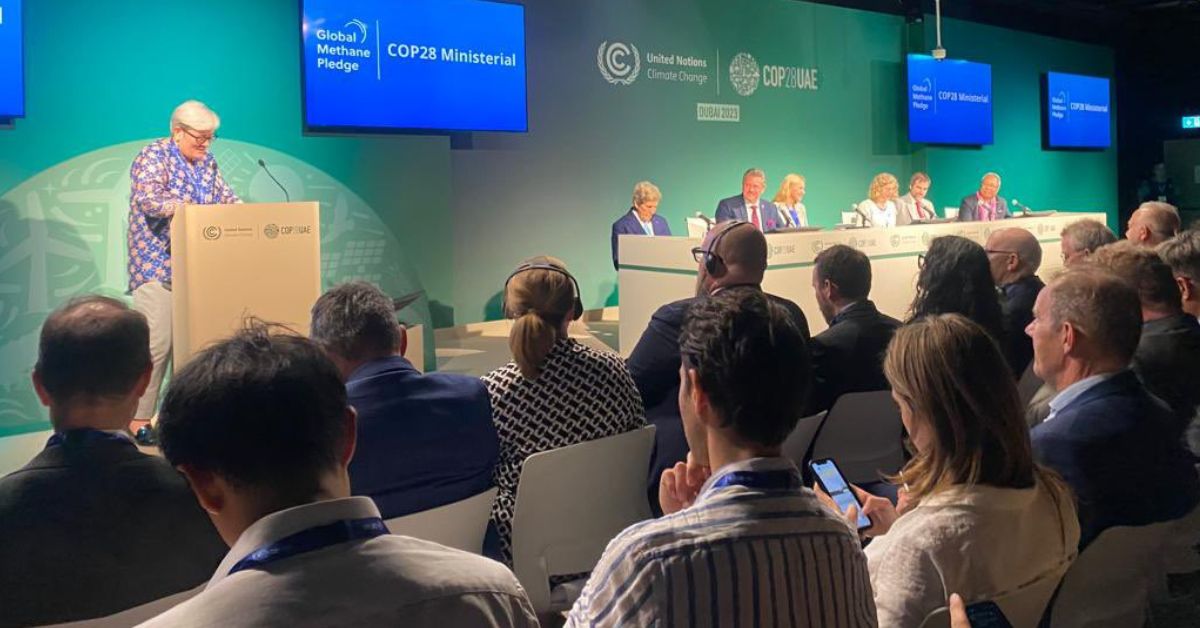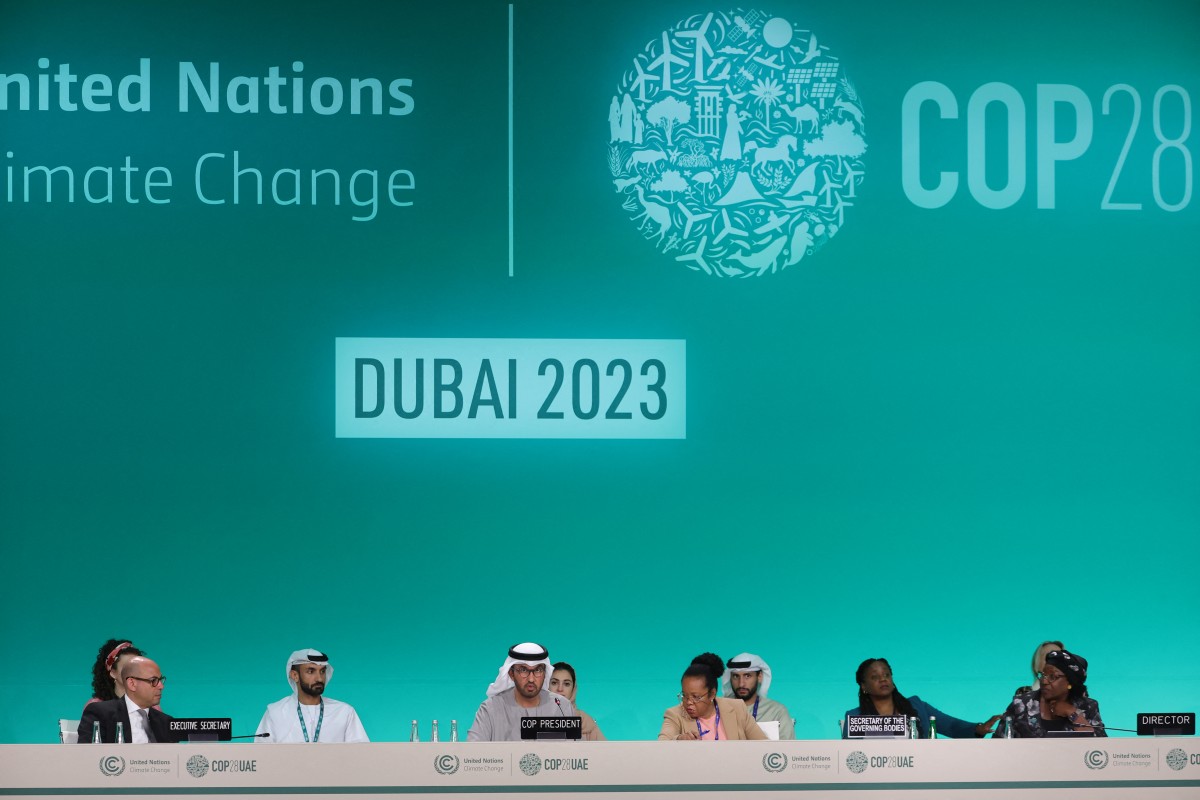DUBAI, UAE — The urgency of addressing climate change has underscored the need for a monumental shift toward renewable energy sources. With the conclusion of COP27 last year, the global community doubled down on commitments to accelerate the transition to sustainable energy.
The period since COP27 has seen notable progress and initiatives aimed at achieving global renewable energy targets. According to Ferdinand Varga, Managing Director & Senior Partner at Boston Consulting Group (BCG), progress in global renewable energy targets since COP27 has been marked by significant advancements and notable challenges.
The investment in clean energy has seen a remarkable increase of 40 percent since 2020, led predominantly by solar photovoltaic (PV) and electric vehicles (EVs).
This surge reflects the push to lower emissions, the strengthening economic case for clean energy technologies, and the urgency of energy security, particularly in fuel-importing countries. In 2023, a record-breaking addition of over 500 gigawatts (GW) of renewable capacity is anticipated, with more than US$1 billion daily invested in solar deployment.
At A Glance Monumental Shift Toward Renewable Energy: Post-COP27, a significant global movement towards sustainable energy is underway. Significant Investment Increase in Clean Energy: Investments in clean energy, particularly solar PV and EVs, have surged by 40% since 2020. Challenges Despite Progress: Achieving net-zero emissions by 2050 poses significant challenges, necessitating massive investments in technology and infrastructure. Emerging Economies' Progress: Countries like India, Indonesia, Brazil, and sub-Saharan Africa are making notable strides in renewable energy and reducing carbon emissions. COP28's Innovative Policies: Introduction of financial and technological initiatives to accelerate the deployment of clean energy. IRENA's Active Involvement in COP28: Launch of platforms and initiatives focusing on decarbonizing sectors and advancing global energy transitions. Need for Increased Renewable Deployment: A call has been made for tripling renewable energy generation capacity and doubling energy efficiency improvement rates by 2030. Importance of Renewable Energy in Achieving SDGs: Acknowledging renewable energy's role in achieving Sustainable Development Goals and addressing global electricity access issues.
The expansion of manufacturing capacities for crucial components like solar PV modules and EV batteries is also notable. This momentum is underscored by the fact that one in five cars sold in 2023 is electric, compared to one in 25 in 2020.
However, despite these positives, there are challenges. The International Energy Agency (IEA) estimates that achieving net-zero emissions by 2050 requires 60 percent of global power generation to come from renewables by 2030. Yet, as of 2021, renewable energy sources (RES) constituted only 28.7 percent of global power generation. Thus, the path to net-zero is further complicated by the need for a massive investment of at least $4 trillion annually in technology and infrastructure through 2030.
“Clean electrification, efficiency improvements, and a switch to lower- and zero-carbon fuels are vital for emerging and developing economies to meet their energy and climate targets. This shift has broad implications, as seen in countries like India, Indonesia, Brazil, and those in sub-Saharan Africa,” Varga told TRENDS.

For example, in India, carbon dioxide emissions per dollar of value added by the industry are expected to decrease by 30 percent by 2030, and sales of electric vehicles will significantly increase. In Indonesia, the share of renewables in power generation is projected to double by 2030, while in Brazil, biofuels are anticipated to meet 40 percent of the road transport fuel demand by the end of the decade. In sub-Saharan Africa, meeting national energy and climate targets implies that 85 percent of new power generation plants up to 2030 will be based on renewables.
Varga said, “The journey toward achieving global renewable energy targets post-COP27 is marked by both progress and challenges. The increasing investment in renewables, the shift away from fossil fuels, and the significant strides made by emerging economies are promising. However, the challenges of financing, technological advancements, and geopolitical complexities underscore the need for continued effort and collaboration across sectors and nations to realize these ambitious goals.”
At COP28 this year, a range of innovative policies and initiatives have emerged, emphasizing financial innovation, technology leapfrogging, policy innovation, and community-driven approaches to accelerate the deployment of clean energy technologies.
According to Varga, these include debt-for-climate swaps, green bonds, and “polluter pays” mechanisms for financial innovation; establishing green technology hubs and scaling up renewables in vulnerable regions for technology; dynamic feed-in tariffs and performance-based incentives for policy innovation; and indigenous clean energy partnerships and just transition agreements for community-driven approaches.
Progress in global renewable energy targets since COP27 has been marked by significant advancements and notable challenges.
Ferdinand Varga, Managing Director & Senior Partner at Boston Consulting Group
Furthermore, COP28 saw IRENA’s active involvement, including the launch of the Energy Transition Accelerator Financing Platform (ETAF) to advance the global energy transition in developing countries. The Industrial Transition Accelerator (ITA), initiated by the COP28 Presidency, United Nations Climate Change, and Bloomberg Philanthropies, focuses on decarbonizing heavy-emitting sectors. The continuation of the Alliance for Industry Decarbonization and the Energy Transition Changemakers Initiative further highlights the holistic approach at COP28, aiming to form alliances, improve access to finance, and drive impactful energy transitions.
These initiatives at COP28 represent a concerted effort to advance clean energy technologies, reimagine financial models, foster international collaboration, and empower communities in the clean energy transition. On the other hand, COP28 is committed to supporting developing countries in their transition to a low-carbon economy while ensuring their energy needs are met.
“To achieve this, COP28 has made comprehensive commitments and actions. The urgency to meet the Paris Agreement goals of keeping global warming well below 2°C, with efforts to limit it to 1.5°C, is recognized by COP28,” Varga said.
Therefore, there is a need for a significant increase in the deployment of renewables and energy efficiency. This means tripling the world’s installed renewable energy generation capacity to at least 11,000 GW by 2030 and doubling the global average annual rate of energy efficiency improvements from around 2 percent to over 4 percent every year until 2030.
COP28 acknowledges the importance of energy in achieving all UN Sustainable Development Goals and the impact of shifting energy systems on jobs, livelihoods, and communities. Currently, nearly 800 million people globally, mainly in Africa, lack access to electricity. Renewable energy and energy efficiency are critical for achieving UN Sustainable Development Goal 7, which focuses on affordable, reliable, sustainable, and modern energy.

COP28 notes the need for high-level political action and collective efforts to accelerate efficiency improvements and the scaling of renewables. This includes strengthening international collaboration, developing resilient value chains and technology, expanding financial support in emerging markets and developing economies, and enhancing technical support and capacity building.
Varga believes that to achieve these targets, countries need to adopt ambitious national policies on renewable energy and energy efficiency and reflect this ambition in their Nationally Determined Contributions (NDCs). This also includes collaborating on accessible financing mechanisms to reduce the cost of capital in these economies.
Technological Innovation: Ongoing research and development in renewables, hydrogen, and carbon capture and storage (CCS) are vital for improving efficiency and reducing costs.
Regional Collaboration: Sharing knowledge, best practices, and resources across the Gulf Cooperation Council (GCC) can expedite progress and foster innovation.
Just Transition: Managing the social and economic impacts, including implementing job retraining and reskilling programs, is crucial for public support and a smooth transition.
The GCC’s energy transition is a transformative journey, aiming to replace fossil fuels with renewables and reshape their economies and societies. With the right mix of ambition, collaboration, and innovation, the GCC has the potential to emerge as a leader in the global clean energy landscape.

